Does an academic chemistry career help or hinder when you move up the ladder? Nina Notman gives us an insight into the role of university leaders
Does an academic chemistry career help or hinder when you move up the ladder? Nina Notman gives us an insight into the role of university leaders

While chancellors are just figureheads in UK academia, those around them are very busy indeed. The vice-chancellors are effectively the chief executives of universities, meaning they have overall responsibility for the huge variety of academic and non-academic activities that their institutions participate in. At most universities they are supported in their roles by a team of pro-vice-chancellors, each taking responsibility for a different section of university life.
The vast majority of our vice- and pro-vice-chancellors started out their academic life as active researchers and teachers, before taking on managerial positions such as heads of schools or departments, and then moving into university leadership. And you may be surprised to learn that there are more chemists in these jobs than a normal distribution would predict.
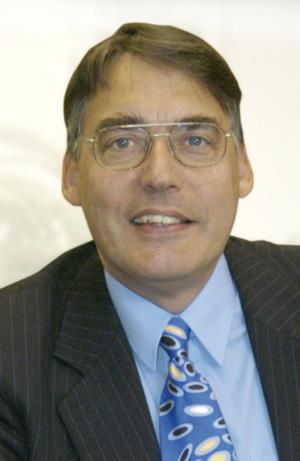
‘The skills that one gains in running a research group really do have some bearing on the vice-chancellor role,’ agrees Andrew Hamilton, bio-organic chemist and vice-chancellor at the University of Oxford, UK.
‘The other two obvious advantages of being a chemist [for the vice-chancellor role] are that a lot of chemistry is about problem-solving – and you get plenty of that when you are a vice-chancellor – and secondly to be a successful chemist you have to be a strategic thinker. If you think about a synthesis or an analytical program, they all have to be a viable strategy, so you get used to thinking about long-term strategy,’ adds Ebdon.
Being pulled upwards
But what is the draw? Most vice- and pro-vice-chancellors admit to having been very happy running successful research groups, so what pulls them into the leadership direction?
‘The reason why I first accepted a management role in a university was because I’d spent a lot of time moaning that people that didn’t understand science and didn’t understand research were getting these jobs,’ says Ebdon. ‘I was then challenged to put my hat in the ring and I thought yes, unless enough people like me are prepared to do that then nothing will change.’
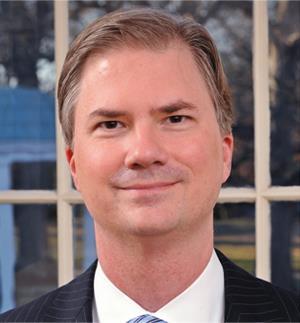
Waving goodbye to the lab?
For some, the step into the chancellor’s team means leaving behind their first love: the research lab. Ebdon managed to maintain an active research group during his time as a deputy vice-chancellor at the University of Plymouth, but found he did not have the time to continue once he became vice-chancellor at Bedfordshire nine years ago. The same is true for Guy Orpen, the pro-vice-chancellor for research and enterprise at the University of Bristol in the UK. ‘It is physically not possible for me to be driving research in anything like the way I once did,’ he says. ‘That is the sadness; I miss it.’
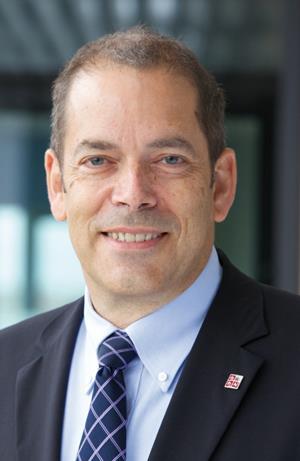
At the University of Cambridge, pro-vice-chancellors are still encouraged to be active in the research lab. ‘My contract says I am pro-vice-chancellor 80% of the time and 20% of the time I am a professor of chemistry,’ explains Jeremy Sanders, pro-vice-chancellor for institutional affairs at the university. ‘So we don’t lose touch with our academic roots.’ But as Sanders is heading for retirement in 2015, his research efforts are slowly winding down.
The same is also true at the University of Oxford: Hamilton is still able to dedicate some of his time to research. ‘I’ve kept a small research group in the chemistry department here in Oxford,’ he says. ‘I go to the lab and see my students and my postdocs at least once and often twice a week.’ Thorp also manages to maintain a small research presence, sharing a number of students with his colleagues in the chemistry department.
Additionally, Thorp still squeezes in some undergraduate teaching – jointly running an undergraduate course on entrepreneurship. This is not true for many other vice- and pro-vice-chancellors, however. ‘I didn’t teach undergraduates again after I became deputy vice-chancellor,’ says Ebdon. ‘I didn’t think it was fair because I didn’t think that the undergraduates would be able to find me and ask me questions.’
For those in university leadership, without daily contact with their students (although many do have occasional one-to-one sessions with those with concerns), there can be the feeling of being removed from their charges’ opinions and needs. To overcome this, Thorp has turned to social media. He has a frequently updated blog and an active Twitter account. ‘I think social media is an important way to connect with the students and to keep informed about what is going on,’ he says, ‘and if you have the right collection of people that you are following you can get your own information about what is going on on your campus in a way that is not filtered for you.’ He also views it as a good way to interact with students on a personal level. ‘When you respond to someone on Twitter, if you are a public figure they are very impressed,’ he says. ‘So I try to write as many responses as I can.’
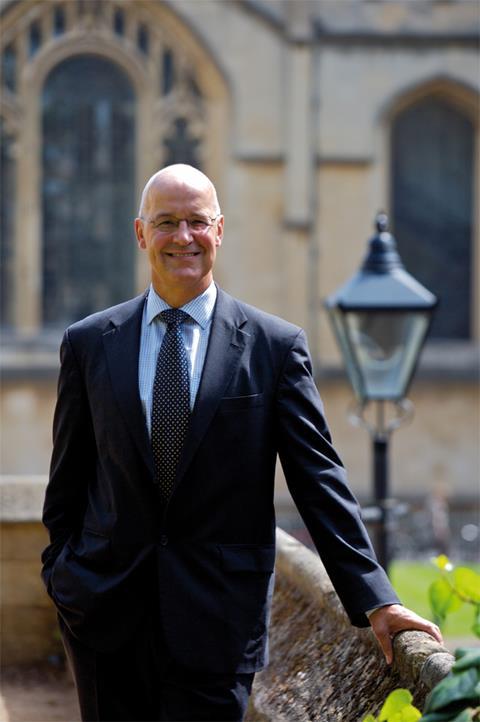
Leading the best
What is life like leading academics? Are they a difficult bunch to keep in line? ‘Yes,’ says Bristol’s Orpen frankly, ‘they are very difficult to manage in the sense that it is fruitless to give orders to academics to go and research in certain areas or to behave in a certain way. You need to create opportunities and incentives and benefits to the research community that allow them to do the things they are best at, to take advantage of their creativity and their independence in full. To try to manage that would do away with that independence of thought, and it is the independence of thought that makes them great researchers.’
Hamilton agrees. ‘Faculty who in their research are always challenging received wisdom can sometimes be quite similarly challenging of vice-chancellors and university administration,’ he says. ‘Actually, that’s a healthy thing because it requires us to always be thinking about our decisions, our policies, the nature of the consultations with our faculty colleagues that have taken place.’
‘All their academic careers have been built on challenging perceived wisdom so if they get a received instruction they will challenge it and question it,’ adds Ebdon.
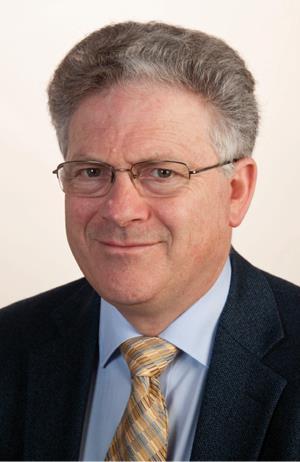
The next step
Vice-chancellors and pro-vice-chancellors are normally in their roles for fixed periods of time – which varies between institutions – but what do they do once their time is up? Ebdon took that step at the start of September 2012, and become director of fair access to higher education at the UK’s Office for Fair Access. This independent public body helps to safeguard and promote fair access to higher education.
‘I announced my retirement at the University of Bedfordshire and within a few days the headhunters who were looking for the next director of fair access were on the phone,’ he explains. ‘My job is to make sure there aren’t any financial barriers in the way of people going to university who have the ability to succeed and indeed the motivation to succeed.
‘On a day-to-day basis, that means that every university that wants to charge above the standard fee of £6000 has to agree with me an access agreement, to ensure that people from a wide variety of different backgrounds can still get into university.’
Meanwhile, Thorp is planning to make the jump out of leadership roles and back into the university’s research labs in the summer of 2013. ‘That’s still the thing I love doing and I think that it is incredibly important for us to have academics in these roles who come from the faculty and are able to go back to the faculty. My plan is to go back to the faculty and teach and do research like I did before,’ he explains. He will also be able to get back involved with a spin-out company he cofounded – something his current role has prevented him from doing.
Cambridge’s Sanders has also made a decision about what will happen soon after the end of his term: retirement. But this doesn’t mean he intends to leave academia. ‘My plan is to attach myself to younger research groups and be a grandfather in the group. So, help the students and postdocs with their scientific problems, or indeed their other problems, but without having the responsibility of writing grants and making sure they finish their thesis on time,’ he explains. ‘Even when I’m retired I expect to still be busy around the university.’It is incredibly important for us to have academics in these roles who come from the faculty
Hamilton and Orpen both said ‘Who knows?’ when asked about future plans, although Orpen admits that returning to the research lab would be difficult to him now he has wound down his group. ‘It’s a question you ask yourself when you take on management and leadership roles: am I preventing myself going back into what I enjoyed so much?’ he says.
However, he does not view the end of his research career as an entirely bad thing: ‘While I miss the interplay of doing research on a daily and an active basis, there are plenty of other very stimulating and challenging things about the role that make it a great joy to do,’ he explains.
Sanders agrees that life as a pro-vice-chancellor is a pleasant one. ‘I sometimes have very difficult meetings with people with problems and equally I have a lot of exciting events,’ he says. ‘I get to meet fascinating people from all around the world.’
Nina Notman is a science writer based in Salisbury, UK












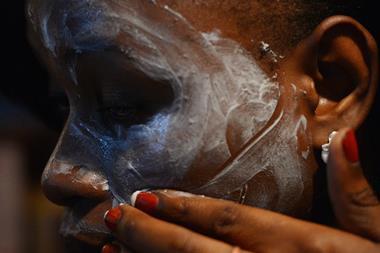
No comments yet